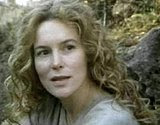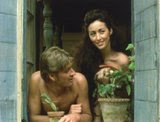
Is demum miser est, cuius nobilitas miserias nobilitat.
(Indeed, wretched the man whose fame makes his misfortunes famous.)
Lucius Accius (170 BC – 86 BC)
When did we start getting so fascinated with other people? Is the obsession with famous people one that is only a modern conceit? Well, of course not–people have always been interested in other people, and we know from our own books that scandal, chatter, talk and tittle-tattle can make or break a person’s reputation.
And, according to one researcher, the cult of personality didn’t start in the 19th century, but even before that, in the 18th.
Elizabeth Barry of the University of Warwick in England says the phenomenon of celebrity “can be traced back to the rise of newspapers and magazines and the popularity of obituaries of unusual people, published in what served as the gossip sheets of the era.”
Begging the question, who would write these obituaries? That would probably be a good living for a creative hero or heroine, hm? And deciding which to spotlight, would that prove to be a position of influence?
“Obituaries were one of the most-read sections of newspapers and magazines of the 1700s. They were intended to provide an account of the life of someone who had recently died as a way of illustrating how the life you led would be rewarded or punished in death.
However, the rise in popularity of obituaries actually came because the deceased were regarded as objects of scandal and public fascination — in other words, Great Britain’s first celebrities.
For instance, the Gentleman’s Magazine in 1789 gave an account of the life of Isaac Tarrat, a man known to hire himself out to impersonate a doctor and tell fortunes in a fur cap, a large white beard and a worn damask night gown. Another subject, Peter Marsh of Dublin, was made famous by his convictions about his own death in 1740. After being hit by a mad horse which died soon after, Marsh convinced himself that he would also go mad and die. The Gentleman’s Magazine reported that he duly died “of a conceit that he was mad.”
Are you fascinated with certain celebrities? Which ones? Which of the Regency-era public figures are most interesting to you? Do you like it when those real people end up in our fictional books?
Thanks!



 he great turning point for the Regency was the French revolution. Just as we feel now, that history has been made and a new era is beginning, people then might remember where they were when they heard about the fall of the Bastille. The French revolution was the wakeup call of its day, a source of inspiration and hope.
he great turning point for the Regency was the French revolution. Just as we feel now, that history has been made and a new era is beginning, people then might remember where they were when they heard about the fall of the Bastille. The French revolution was the wakeup call of its day, a source of inspiration and hope.



















